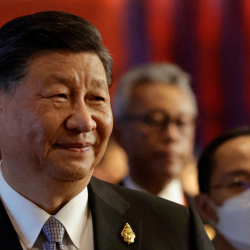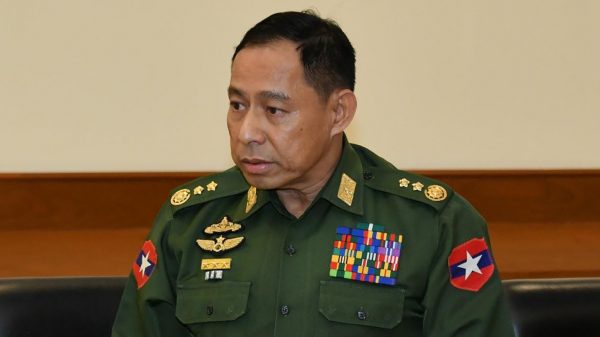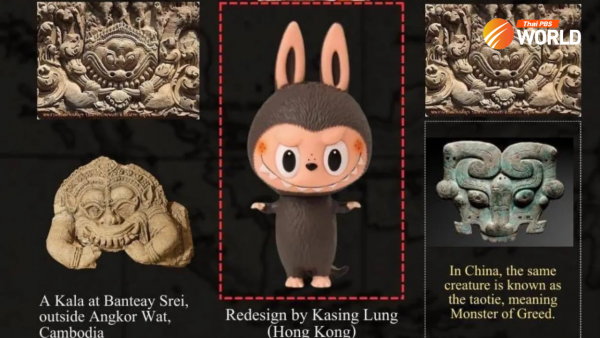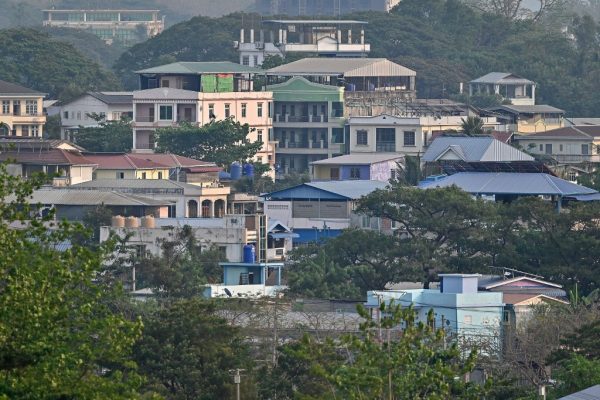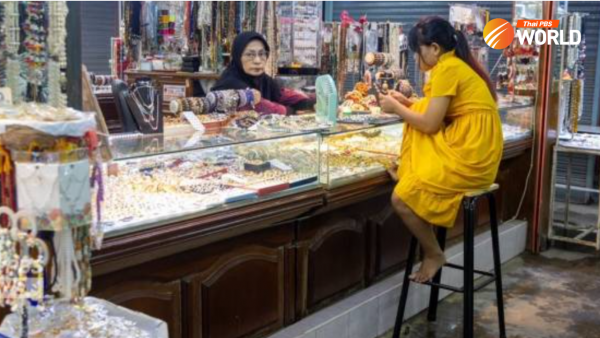Experts want Thailand to pursue a more inclusive BCG model for development
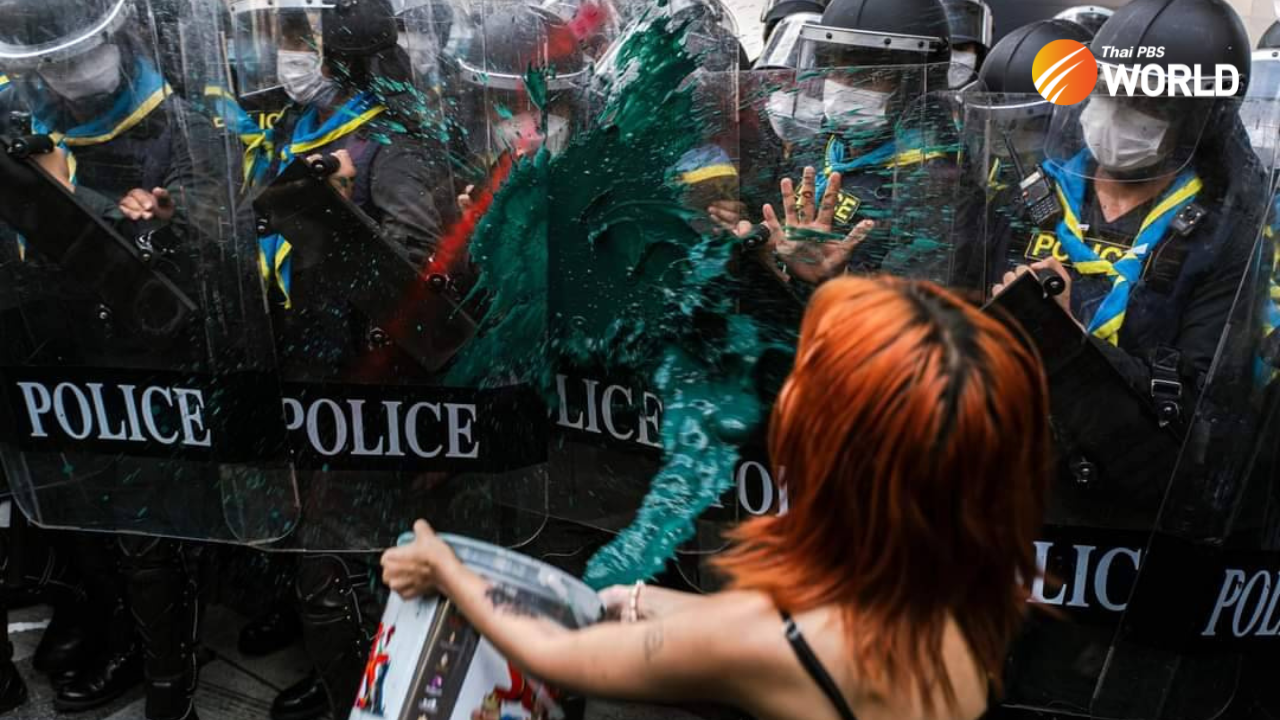
Thailand is expecting the leaders of Asia Pacific Economic Cooperation (APEC) members to endorse the Bangkok Goals 2022 during the summit this weekend, which aims to move the region towards the ambitious Bio-Circular-Green Economy Model (BCG) for balanced, sustainable, and inclusive development.
Experts, however, want the leaders to address the root causes of various environmental and climate issues so as to benefit all stakeholders.
Speaking at a seminar on “APEC-Thailand 2022: Challenges and Achievement” hosted by Thammasat University’s Pridi Banomyong International College (PBIC) on November 15, the spokesman of the Foreign Ministry, Tanee Sangrat, said the APEC Summit would produce three major documents to support the BCG — the Bangkok declaration and two separate chairman statements issued by leaders of the summit and ministerial meeting.
The Bangkok Goal 2022 would comprise four key elements: climate change, sustainable trade and investment, biodiversity, and waste management, he said.
Thailand as the host of APEC 2022 has worked hard to pitch the so-called Bangkok Goal for the government-adopted BCG economic model within the APEC’s architecture as a mechanism to help materialize the grouping’s sustainability objective.
In order to make the Bangkok Goals and BCG model last long within the APEC cooperation framework, the Thai delegation at senior official level has worked to implement a section with a mechanism to track the progress of the Bangkok Goals over time.
Under the theme “Open. Connect. Balance.”, the APEC meetings addressed various issues such as environment, climate change, energy, and gender equality to meet the objectives of sustainable and inclusive development for the benefit of all stakeholders in the region, Tanee said.
Guided by Putrajaya Vision 2040 and Aotearoa Plan of Action, the Bangkok summit highlights the need to work on an Asia Pacific free trade area agenda, aimed at high standards and a comprehensive regional trade arrangement, he said.
The APEC also promotes seamless connectivity in all dimensions including a safe passage proposal to enhance physical linkage of members after the COVID-19 pandemic lockdown, Tanee.
Goals without the people
Anusorn Tamajai, an economist at PBIC, questioned whether the APEC theme really reached out to all stakeholders of the dynamic economic development. It seems that APEC is mostly open for business opportunities of big conglomerates and connects them only with state agencies, rather than with ordinary people and civil society, he said.
“To make it more balanced, the APEC should address many other issues such as environmental concerns, human rights and democratization,” Anusorn told the seminar.
“Of course, I see many good aspects of the BCG, but if the government wants all stakeholders to benefit from the economic model, inclusiveness and participation of the small and medium enterprise as well as civic groups are required,” he said.
The scholar said inclusiveness, as the government and APEC would like to see, should be translated into reality for vulnerable groups such as workers who rely on their daily wage.
“For example, the government should think about compensation for workers who might lose their daily incomes during the APEC Summit week when the government announced public holidays to facilitate smooth holding of the meetings in the capital.”
Wanun Permpibul of Climate Watch Thailand said the BCG economic model is likely a model for business companies to exploit environment-related matters and climate change for their profit.
“While the government has claimed the BCG model could help ease the impact of climate change, the plan we have seen is likely a greenwashing machine for big conglomerates which actually are responsible for gas emissions,” she said. “BCG is not a model to tackle climate change problems at its root.”
“The big companies even would have double benefit from the circular economy as they might get government incentives and reduce their production cost by using recycled material, but what about consumers, who are affected by climate change?” Wanun posed. “What will they benefit from the scheme?”
Rather than passing on some of their profits to compensate vulnerable people impacted by climate change and environmental damage, the states and big conglomerates are now establishing carbon trading markets to profit from the situation, Wanun told the PBIC seminar via teleconference from Egypt’s Sharm El Sheikh where she attended the United Nations Climate Change Conference known as COP27.
The APEC’s Aotearoa action plan says that members would promote sustainable growth across sectors and development of low-cost and zero-emission technologies, sustainable finance, and a carbon-pricing mechanism. They would deliver their commitments to accelerate progress towards the 2030 target of doubling the share of renewable energy in the APEC energy mix. Members would work towards resource management, including the APEC Roadmap on marine debris, according to spokesman Tanee.
Anti-government protesters Ratsadon and Thalufah have gathered at Lan Khon Muang since November 16 and plan to block the Asok Montri intersection for demonstrations during the summit this week. They are demanding that the leaders of APEC members address human rights, democratization, and end big conglomerates’ monopoly. Some of them have submitted open letters to embassies of APEC members, including the US and Canada, informing about human rights violations by the government under Prime Minister Prayut Chan-o-cha.
The authorities have announced 20 locations across the capital, including the meeting venue Queen Sirikit National Convention Center, as restricted areas. At least 25,000 security officials have been deployed to maintain order during the summit.
Protesters injured in clash with police at Bangkok’s Democracy Monument
Geopolitics in APEC
Geopolitical conflicts among members of the APEC could jeopardize the summit as developed economies, mostly from the West, might push forward high-standard measures such as carbon tax for environmental protection and climate change handling, while the developing economies might not be willing to accept the suggestions, according to retired diplomat Kobsak Chutikul, an adviser to the Senate’s foreign affairs committee.
Different views on the war in Ukraine among APEC members also forced the summit in Bangkok this year to give up attempts for a joint statement since they failed to reach a common stance on the war waged by member Russia, he said at the PBIC seminar.
The global situation always influences APEC meetings, he said, and noted that the anti-terrorist campaign overshadowed the forum when Thailand hosted the summit in 2003.
“This time the government initially anticipated the COVID-19 recovery would be the main issue at the meeting, but the situation changed after the war broke out in Ukraine in February,” he said. “Subsequently many issues emerged such as food security, supply chains, energy security and disputes among members over their respective stances on the war.”
US President Joe Biden and Russian President Vladimir Putin are both skipping the Bangkok summit, although Foreign Minister Don Pramudwinai once offered forums for them to talk on the Ukraine war on the sidelines of APEC.
“Will the APEC Summit in Thailand this year be the last one? Kobsak asks. “What would happen next year if the host, the US, won’t invite Putin due to their conflict over the war?”
By Thai PBS World’s Regional Desk

